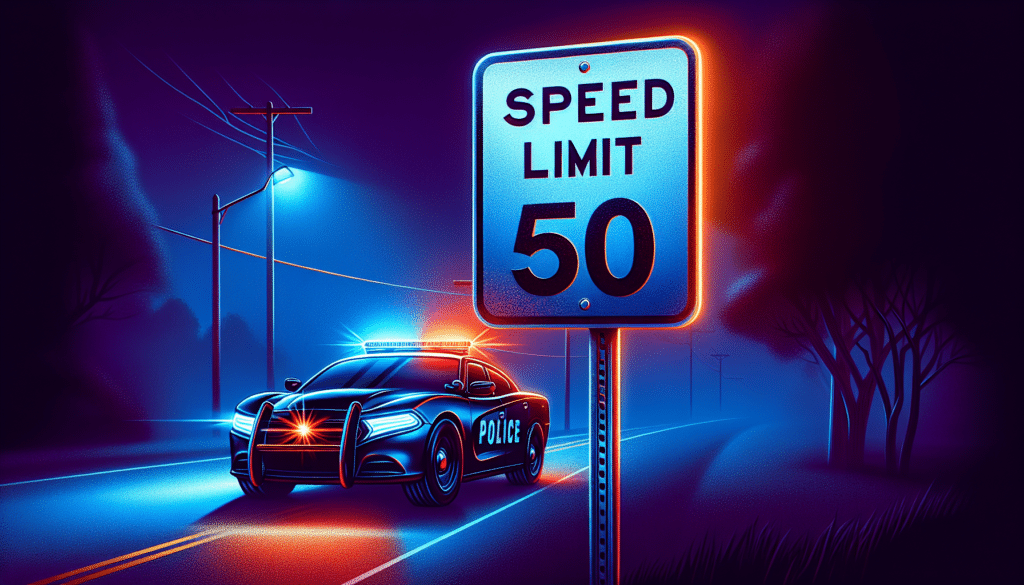Wondering how much does a speeding ticket raise your auto insurance? In California, expect your rates to potentially surge by 36%. It’s a steep cost for a moment of haste. Our guide dives into what influences this increase and offers insights on keeping premiums in check.
Key Takeaways
A speeding ticket in California leads to an average car insurance rate increase of 36%, higher than the national average of 24%, varying significantly based on individual driver history and the severity of the violation.
Car insurance premiums can be affected for 3 to 5 years after receiving a speeding ticket, with potential long-term financial impact, but rates can be reduced again through methods like comparison shopping, taking defensive driving courses, and seeking out discounts.
Insurers have different policies for handling speeding tickets, with some offering forgiveness for first-time minor offenses and others significantly raising rates, highlighting the importance of understanding your insurer’s policies and comparing options.
The Average Impact of Speeding Tickets on Auto Insurance Rates in California

Getting a speeding ticket is not just a matter of paying the fine and moving on. It can have lasting implications on your car insurance rates. Nationally, car insurance rates increase by an average of 24% after a speeding ticket. This translates to nearly $380 more per year in car insurance costs, and for some drivers, the annual cost increase can reach up to $546.
However, this rate increase isn’t the same for every driver or every state. Factors such as driving history and location play a significant role in determining the rate increase after a speeding ticket. The severity of the speeding violation, time since the last moving violation, and how much over the speed limit the driver was going, also come into play.
Minor vs. Major Speeding Violations
Speeding violations aren’t all created equal. They can be categorized into minor and major violations, and the two have different impacts on your car insurance rates. Minor speeding violations typically involve exceeding the speed limit by a small margin. In contrast, major violations involve significantly surpassing the speed limit or engaging in particularly dangerous driving behaviors.
Despite both types of violations leading to insurance rate increases, the hike is generally smaller due to minor violations compared to major ones. Indeed, severe traffic violations lead to higher insurance rate increases compared to minor infractions.
First-Time Offenders vs. Repeat Offenders
How insurance companies react to your speeding ticket also depends on whether it’s your first offense or if you’re a repeat offender. If you’re a first-time offender with a clean driving record and your speeding was not excessive, your insurance carrier may forgive the offense. However, don’t get too comfortable. A first-time speeding ticket can lead to an average insurance rate increase of 20%.
Repeat offenders aren’t as lucky. Subsequent speeding tickets can significantly increase insurance rates. A second ticket could lead to a 67% increase, and a third ticket could cause up to a whopping 111% increase. So, the more tickets you get, the higher the financial penalty.
Car Insurance Rate Increases by Company After a Speeding Ticket in California
Not all insurance companies react the same way to a speeding ticket. Some insurers might double rates after a speeding ticket, while others might not raise rates at all for a first offense. For instance, USAA offers the cheapest average annual premium for drivers with a speeding ticket, followed by Geico as the second cheapest. However, USAA services are only available to military personnel, veterans, and their families.
Interestingly, while State Farm had the smallest rate increase after a speeding ticket, Geico, despite a higher rate increase percentage, has a lower average annual premium compared to Allstate. This might make Geico the cheapest car insurance company for some drivers. Idaho Farm Bureau, Maryland Auto Insurance, and Umialik do not raise rates for drivers after a first speeding ticket. This highlights the importance of shopping around and comparing rates from different insurers after a speeding ticket.
California Rate Increases After a Speeding Ticket
When we zoom into the Golden State, we find that California drivers see an average rate increase of 36% after a speeding ticket, significantly higher than the national average. This increase can range from 10% to as much as 50%, depending on the state-specific insurance regulations.
To put this into perspective, Hawaii offers the lowest average rate increase at 9%, while Michigan has the highest at 49%. Therefore, the consequences of a speeding ticket can be more severe in California compared to other states. A 35-year-old driver, for instance, could face an annual increase of $741 for full coverage insurance after receiving a speeding ticket.
How Long Will a Speeding Ticket Affect Your Insurance Rates in California?
Once a speeding ticket lands on your driving record, it doesn’t just disappear overnight. Speeding tickets typically remain on a driver’s record for 3 to 5 years, but this period can vary by state and insurance company. A premium increase due to a speeding ticket generally occurs at the time of policy renewal or when a new policy is purchased and can last for a few years, which corresponds to the time the ticket impacts the insurance experience period.
During this period, the impact of a speeding ticket on insurance rates can persist, as speeding tickets affect insurance, influencing not just the likelihood of a rate increase, but also potentially extended periods of higher premiums. So, while the flashing lights in the rearview mirror may be a temporary inconvenience, the financial impact of a speeding ticket can linger for years.
Strategies to Lower Your Car Insurance Rates After a Speeding Ticket

Now, let’s shift gears and explore how you can potentially lower your car insurance rates after a speeding ticket. Yes, it’s possible, and there are several strategies you can employ to achieve this. Here are some options to consider:
Take a defensive driving course
Ask for discounts
Shop around for car insurance quotes
Adjust insurance coverage types, amounts, or features
Review coverage as vehicle value depreciates
By implementing these strategies, you may be able to reduce your car insurance rates even after receiving a speeding ticket.
It’s also worth noting that being prudent with insurance claims can prevent further rate increases, especially after receiving a speeding ticket. At-fault accidents, for instance, can significantly increase premiums.
Comparison Shopping
One effective strategy to lower your car insurance rates after a speeding ticket is comparison shopping. Shopping around for a new insurance provider may lead to better rates following a speeding ticket. This is particularly crucial for drivers with violations or an imperfect driving history.
You should consider factors like customer satisfaction ratings, consumer complaint data, and coverage options, along with comparing rates from multiple companies after receiving a speeding ticket. Even high-risk drivers can find competitive insurance rates by diligently shopping around and comparing quotes from a range of insurers.
Discounts and Programs
Another way to lower your rates is to take advantage of usage-based insurance programs and other discounts. These programs offer opportunities for drivers with a speeding ticket to obtain discounts by demonstrating safe driving habits.
You can also access insurance discounts offered by various insurance providers such as:
Multi-policy
Paperless
Payment by bank account
Paid in full
Multi-vehicle
Good student
Completion of defensive driving courses can also lead to insurance discounts. High-risk drivers with speeding tickets can benefit from these programs and discounts, which can help reduce premium costs.
Defensive Driving Courses

Defensive driving courses offer a two-pronged advantage. They can help you become a better driver and earn a discount on your insurance premiums. Drivers who commit a minor speeding offense for the first time might be eligible for a state-approved defensive driving course, which can prevent the ticket from impacting their insurance rates.
Insurance companies may consider participants of defensive driving courses to be lower-risk drivers and provide a discount, with potential savings on premiums ranging from 5% to 20%. When choosing a defensive driving school, it’s important to compare factors such as:
Accreditation
Course delivery options
Reputation
Content
Instructor qualifications
Cost
Contesting a Speeding Ticket: Pros and Cons
What if you believe you were wrongly issued a speeding ticket? You have the option to contest it. Contesting a speeding ticket can lead to favorable outcomes such as the ticket being dismissed if the officer fails to appear in court.
However, it’s not always a straightforward process. Contesting a ticket often incurs more costs than the fine itself, such as legal fees, time off work, and the possibility of court costs if found guilty. Proving innocence can be challenging, and it is crucial to have substantive proof, as courts frequently side with the testimony of the officer.
Speeding Ticket Forgiveness Policies
Some insurance companies may forgive minor traffic violations and may not raise rates after a single speeding ticket. For example, Travelers Insurance provides a Minor Violation Forgiveness feature that prevents an increase in car insurance rates after the policyholder’s first minor infraction.
However, it’s important to note that forgiveness programs aren’t universally available. For instance, these programs aren’t offered in California. So, while forgiveness policies can be beneficial, their availability depends on your insurer and the state in which you live.
High-Risk Drivers and Speeding Tickets
If you have been convicted of serious violations such as DUI or reckless driving, or have accumulated multiple speeding offenses, you can be classified as a high-risk driver. High-risk drivers face much more substantial insurance rate increases compared to those with only minor infractions.
Being labeled a high-risk driver can have serious consequences. Insurance companies might terminate coverage for drivers with serious violations or multiple infractions, classifying them as too high-risk to insure. As a high-risk driver, you must be extra cautious on the roads.
Other Moving Violations That Affect Insurance Rates
Other moving violations that can impact your insurance rates include:
Failure to yield
Reckless or intoxicated driving
Failure to appear in court for a traffic ticket
Speeding isn’t the only moving violation that can raise car insurance rates.
Reckless driving and failing to stop completely are examples of traffic violations that can lead to significant increases in car insurance premiums. Essentially, any violation indicating a higher risk of filing a claim is more likely to result in increased insurance premiums.
Summary
In the fast-paced world we live in, it’s tempting to push the speed limit now and then. But as we’ve explored in this blog post, a single speeding ticket can have a significant impact on your auto insurance rates. From the severity of the violation and your driving history to your insurer’s policies and your state’s regulations, many factors can influence the rate increase you face after a speeding ticket.
Frequently Asked Questions
Can a speeding ticket be contested in California?
Yes, in California, you can contest a speeding ticket through the court system or by paying additional fees. It may also be possible to remove the ticket from your driving record by attending driving classes.
How long does a speeding ticket affect car insurance rates?
A speeding ticket can affect car insurance rates for 3-5 years, depending on the state. It’s important to maintain a clean driving record to avoid these impacts.
Can car insurance companies forgive speeding tickets?
Yes, some car insurance companies may be willing to forgive minor traffic violations based on their policies.
What other tickets can affect car insurance rates?
Other moving violations like failure to yield, running a red light, reckless driving, and failure to appear in court for a traffic ticket can also impact car insurance rates. Avoiding these violations will help keep your rates down.
What is the average increase in car insurance rates after a speeding ticket in California?
The average increase in car insurance rates after a speeding ticket in California for 35-year-old drivers is approximately $741 per year for full coverage insurance.




